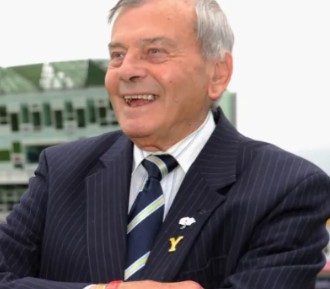Deryck Murray’s Composed Wicketkeeping Anchored the West Indies’ Historic 1975 World Cup Victory.
Deryck Murray’s contribution to the West Indies’ triumphant 1975 World Cup campaign often gets overshadowed by the exploits of the team’s more flamboyant stars. However, his calm demeanor, astute captaincy in Clive Lloyd’s absence, and dependable wicketkeeping were integral to the team’s success. Murray’s presence provided a crucial counterpoint to the aggressive batting prowess of players like Viv Richards and Clive Lloyd, offering a steadying influence in pressure situations. His sharp cricketing mind and tactical acumen were particularly evident during Lloyd’s two-match suspension, where Murray capably led the team to victory, demonstrating his leadership qualities and further solidifying his importance to the squad. While not a prolific run-scorer himself, Murray’s value lay in his ability to anchor the innings, rotate the strike, and build crucial partnerships, allowing the more explosive batsmen to flourish around him.
Murray’s wicketkeeping throughout the tournament was exemplary, exhibiting exceptional glove work and lightning-fast reflexes behind the stumps. He was instrumental in dismissing several key opposition batsmen, effectively neutralizing their threats and bolstering the West Indies’ already formidable bowling attack. His ability to read the game, anticipate the batsman’s strokes, and execute swift stumpings and catches added another dimension to the team’s fielding prowess. In an era preceding specialized wicketkeeping coaches and advanced training techniques, Murray’s natural talent and dedication honed his skills to a level of mastery that earned him widespread respect within the cricketing world. His unwavering concentration and agility behind the stumps provided a reassuring presence for the bowlers, allowing them to attack with confidence, knowing that Murray would efficiently convert any half-chances into dismissals.
Beyond his on-field contributions, Murray’s influence extended to the team’s morale and dynamics. He served as a calming presence in the dressing room, offering advice and support to his teammates, especially the younger players navigating the pressure of a high-stakes global tournament. His experience and composed demeanor helped to maintain a positive and focused environment within the squad, which was crucial in navigating the challenges and maintaining momentum throughout the tournament. Murray’s leadership qualities shone through, not just in Lloyd’s absence, but in his consistent ability to positively influence the team’s overall spirit and cohesion. His quiet confidence and unwavering support fostered a sense of unity and purpose within the West Indies squad, contributing significantly to their eventual triumph.
The 1975 World Cup final against Australia was a testament to Murray’s composure under pressure. Chasing a challenging target, the West Indies found themselves in a precarious position, requiring a steady hand to guide them through the tricky final stages of the innings. Murray stepped up to the occasion, demonstrating his resilience and experience. He absorbed the pressure, playing a calculated innings that allowed his partners to play their natural game and ultimately secure a historic victory. His ability to remain focused and execute the team’s strategy under immense pressure highlighted his crucial role in the team’s triumph. While the headlines focused on the explosive batting performances, Murray’s composed innings was a crucial factor in steering the West Indies to victory, showcasing his ability to adapt his game to the demands of the situation.
Deryck Murray’s impact on the West Indies cricket team extended beyond the 1975 World Cup. He remained a vital member of the squad for several years, contributing to their dominance of international cricket during that era. His dedication to the game, combined with his understated leadership style and unwavering commitment to teamwork, made him a respected figure both on and off the field. He served as an inspiration to aspiring cricketers, showcasing the importance of discipline, composure, and a team-first mentality. Murray’s career serves as a valuable lesson in the importance of recognizing and appreciating the contributions of players who may not always grab the headlines, but whose roles are fundamental to a team’s success.
In conclusion, while the likes of Clive Lloyd and Viv Richards often dominated the spotlight, Deryck Murray’s contributions to the West Indies’ 1975 World Cup victory were invaluable. His calm demeanor, astute leadership, and reliable wicketkeeping provided a vital balance to the team’s explosive batting line-up. He was the steadying force, the calming influence, the reliable presence behind the stumps – a true unsung hero of that historic triumph. Murray’s legacy extends beyond statistics and accolades, encompassing the intangible qualities of leadership, sportsmanship, and the unwavering commitment to teamwork that exemplified the spirit of the champion West Indies team. His story serves as a reminder that true success in any team sport depends on the collective effort of all its members, and that the contributions of those who operate outside the spotlight are often just as crucial as those who bask in it.
Share this content:












Post Comment